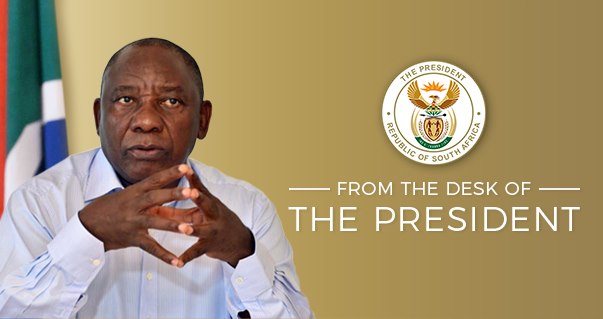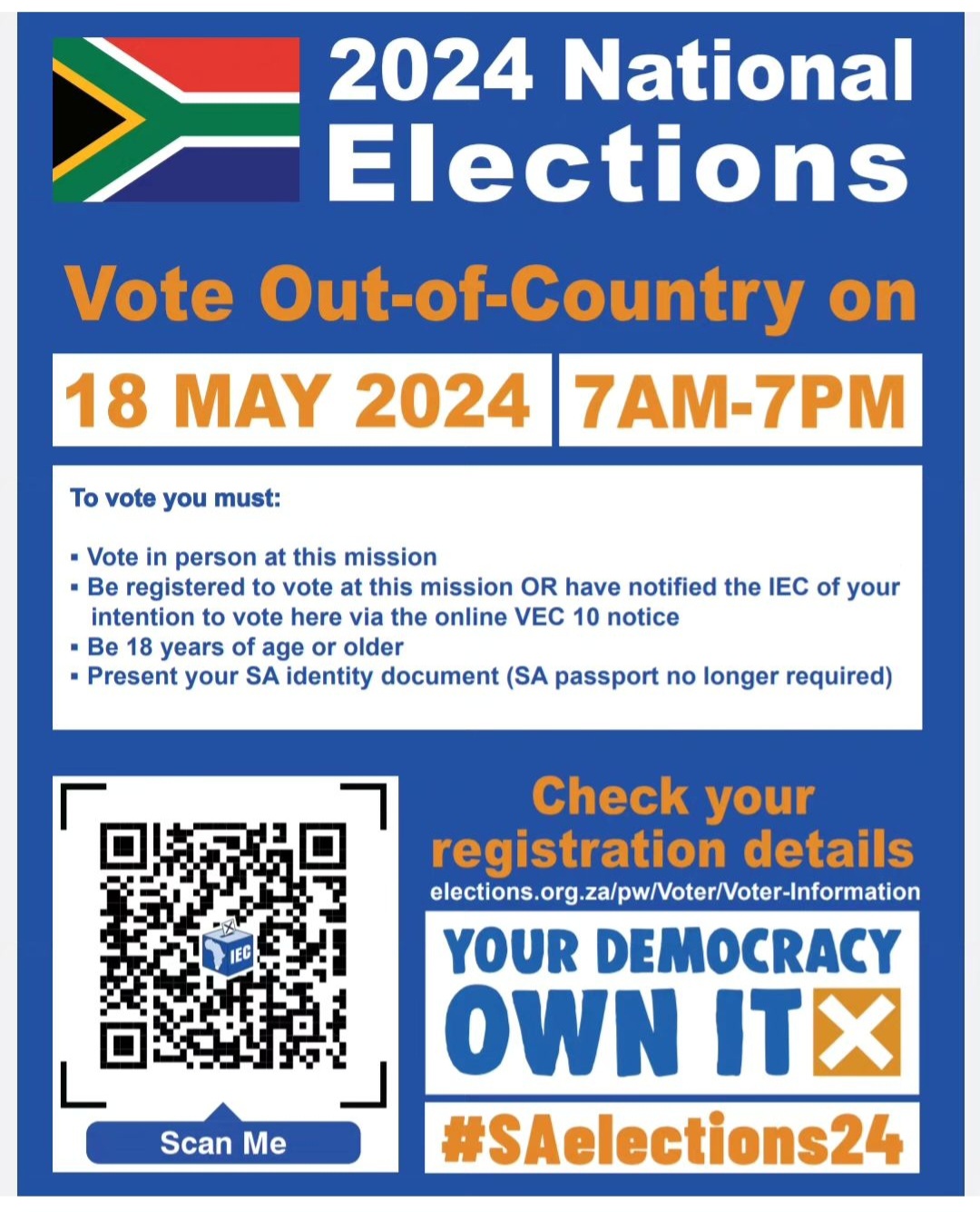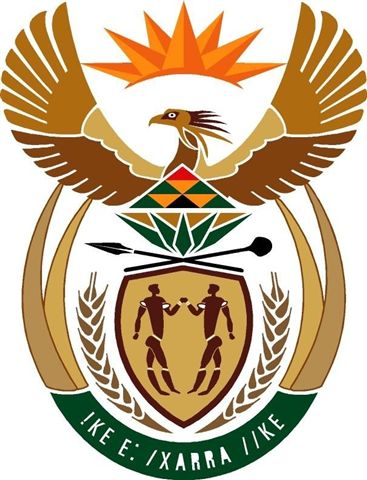FROM THE DESK OF THE PRESIDENT - 22 APRIL 2024

As Africa’s newest country, South Sudan needs greater support from the international community
Dear Fellow South African,
I have just returned from a working visit to South Sudan, a country that in 2011 emerged from the shadow of Africa’s longest civil war to become the world’s newest independent nation.
South Sudan’s journey to statehood, and the progress it has made towards constructing and consolidating its nationhood, is a remarkable and largely untold story.
Much like our own experience as South Africa, the people of South Sudan were faced with the task of constructing a new nation in the midst of conflict and social divisions, all the while contending with a legacy of racial discrimination and oppression.
The South Sudanese set out to do so in the face of the most extraordinary, challenges. The incoming government of the newly independent country of South Sudan had to build an economy and institutional capacity from the ashes of their sad past.
Prior to independence, the south of Sudan had been deliberately marginalised, leaving it one of the world’s least developed places, with high levels of poverty, unemployment, illiteracy and poor health outcomes. There was also the impact of the two Sudanese civil wars between the north and south that lasted for over 20 years and resulted in shattered livelihoods, displaced people and the loss of more than two million lives.
These massive challenges of political transition and reconstruction, coupled with deep social divisions, resulted in internal conflict that threatened South Sudan’s prospects for stability, peace and progress.
When the internal conflict broke out, South Africa was among the countries that joined the peace effort. The signing in 2018 of the Revitalised Agreement on the Resolution of the Conflict in the Republic of South Sudan became a beacon of hope.
It is admirable that the permanent ceasefire continues to hold and that the parties to the agreement have honoured their commitment to end armed conflict and engender national security by seeking to form a united national defence force through the cantonment and training of former combatants.
This political and legal framework that is being implemented outlines the aspirations of the people of South Sudan to bring a permanent end to armed conflict, consolidate democracy and determine their collective destiny. Included in the agreement are commitments to adopt a permanent constitution and create unified security services.
As South Africa, we understand well the challenges of national reconstruction, and of the difficulties of forging national unity in a multi-ethnic society.
South Africa has provided development, mediation and other forms of assistance to South Sudan since 2005. We have been consistent in our support for the current Revitalised Transitional Government of National Unity and the people of South Sudan as they navigate the transition period.
We continue to provide support at a bilateral level and as the Chairperson of the African Union High-Level Ad hoc Committee on South Sudan, also known as the C5. This committee consists of South Africa, Algeria, Chad, Nigeria and Rwanda.
All these countries have invested a great deal of time and effort to ensure there is stability in South Sudan. South Africa is also one of the guarantors of the Peace Agreement.
South Africa helps South Sudan with capacity building for state institutions and programmes for post-conflict reconstruction. We have used our country’s African Renaissance and International Cooperation Fund to provide humanitarian assistance to people in South Sudan negatively impacted by the conflict.
South Sudan is now at a crucial point in its journey towards consolidating democracy. Elections are scheduled to be held in December this year, before the Revitalised Agreement expires in February 2025. Parties are hard at work to ensure that the necessary preconditions are in place for the holding of elections that are free, fair and credible.
During my visit to the capital Juba last week, I met with President Salva Kiir Mayardit, First Vice-President Riek Machar and other South Sudanese political leaders. I also met with representatives of the AU, monitoring bodies and international development organisations.
I was glad to see the progress that has been made in the run-up to the elections, including the establishment of a national elections commission and the registration of political parties. What is pleasing is that the South Sudanese are working together to address the outstanding issues on the agreed Roadmap as the country advances towards elections. This proves that the adage “African solutions for African problems” is truly at work in South Sudan. The best we can all do is to encourage and support the process.
As Africa and as the international community, we owe it to a people who have suffered so much and for so long, to support South Sudan’s journey towards becoming a fully-fledged democracy. We have a collective responsibility to ensure that South Sudan is ultimately able to reap the dividends of peace and security, including economic prosperity.
South Sudan needs investment, particularly in social and economic infrastructure. A number of South African companies have demonstrated their confidence in South Sudan’s economy and have a presence there.
At a school in Juba, there is a mural of President Nelson Mandela alongside that of Dr John Garang, the founding leader of the Sudan People’s Liberation Movement/Army. Just as Africa’s independence movement inspired our own liberation struggle, our democratic transition in 1994 gave encouragement to the people of South Sudan.
Thirty years since we attained our freedom, we are proud of our ongoing support for the efforts of fellow African countries to emerge from conflict to rebuild and consolidate democracy.
Despite the ravages of a bitter war, South Sudan was remarkably able to emerge and join the community of nations.
With the ongoing political and material support of the international community, the United Nations, the AU and other countries supporting the peace process, stability, prosperity and a sustainable peace in South Sudan are well within reach.
With best regards,





